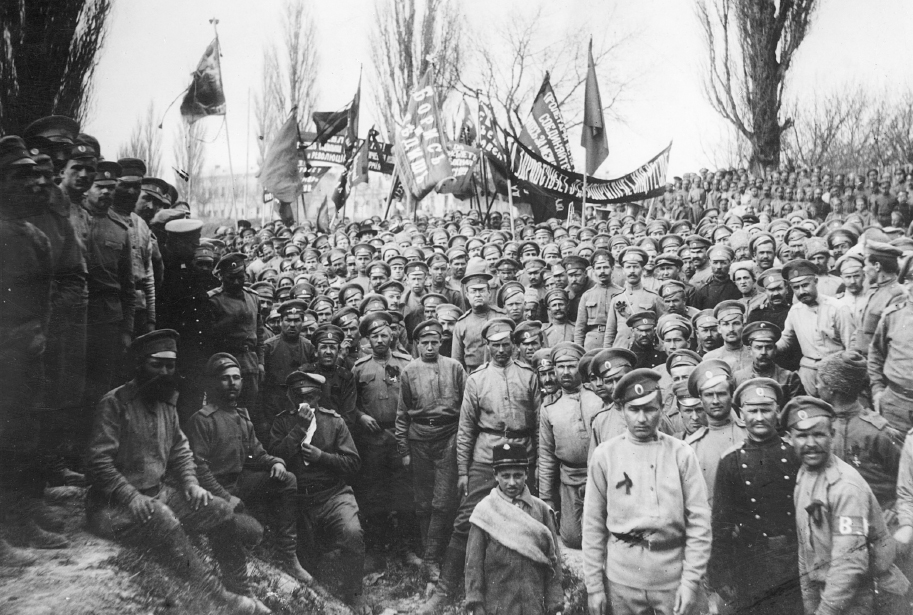Lenin and the Bolshevik Revolution
A pragmatic and flexible thinker, Lenin updated Marx’s revolutionary philosophy to address existing conditions in Russia. Three interrelated concepts were central for Lenin. First, he stressed that only violent revolution could destroy capitalism. Second, Lenin argued that, under certain conditions, a Communist revolution was possible even in a predominantly agrarian country like Russia. Peasants, who were numerous, poor, and exploited, could take the place of Marx’s traditional working class in the coming revolutionary conflict.
Third, Lenin believed that the possibility of revolution was determined more by human leadership than by historical laws. He called for a highly disciplined workers’ party strictly controlled by a small, dedicated elite of intellectuals and professional revolutionaries. This elite would not stop until revolution brought it to power.
Other Russian Marxists challenged Lenin’s ideas. At meetings of the Russian Social Democratic Labor Party in London in 1903, matters came to a head. Lenin demanded a small, disciplined, elitist party dedicated to Communist revolution, while his opponents wanted a more democratic, reformist party with mass membership. The Russian Marxists split into two rival factions. Lenin called his camp the Bolsheviks.
Unlike other socialists, Lenin had not rallied around the national flag in 1914. Observing events from neutral Switzerland, where he lived in exile, Lenin viewed the war as a product of imperialist rivalries and an opportunity for socialist revolution. After the February Revolution of 1917, the German government provided Lenin with safe passage across Germany and back into Russia. The Germans hoped Lenin would undermine the sagging war effort of the provisional government. They were not disappointed.
Arriving in Petrograd on April 3, Lenin attacked at once. He rejected all cooperation with the provisional government. His slogans were radical in the extreme: “All power to the soviets”; “All land to the peasants”; “Stop the war now.” Lenin was a superb tactician. His promises of “Peace, Land, and Bread” spoke to the expectations of suffering soldiers, peasants, and workers and earned the Bolsheviks substantial popular support. The moment for revolution was at hand.
